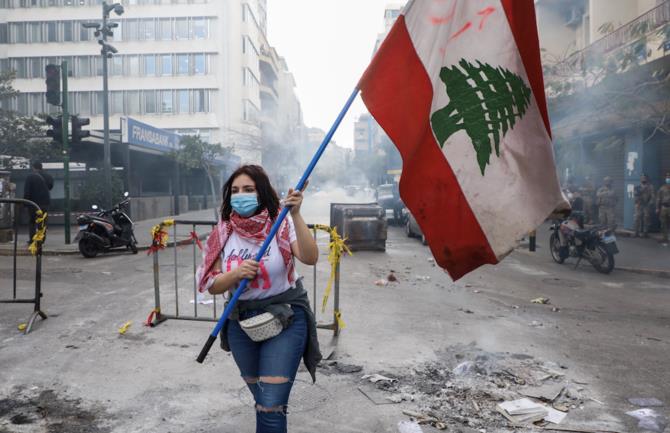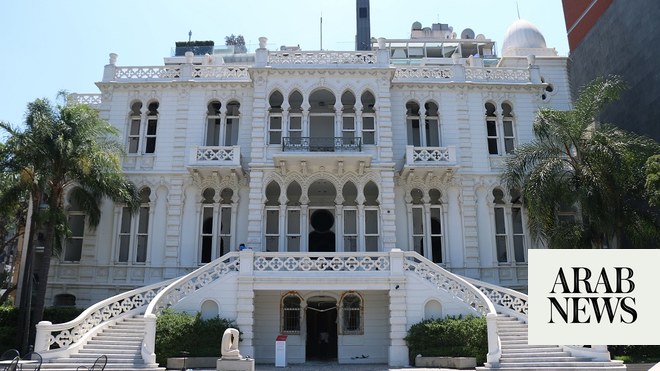
Resilience is widely embraced in Lebanese society, both at home and abroad, as a source of pride, signifying the country’s capacity to endure frequent crises. However, within this idea lies a collective trauma and a tendency to overlook harsh realities.
Over the past five decades, Lebanon — whose capital Beirut was once known as the “Paris of the Middle East” — has endured a 15-year civil war, Israeli invasion, the repercussions of the prolonged Syrian conflict, the catastrophic 2020 Beirut port explosion, one of the world’s most severe economic collapses of the last 150 years and, most recently, the looming threat of the Gaza war. Thus, Lebanon’s attainment of the label “resilient” has not come easily for its people or society.
When the Oct. 7 Hamas attack on Israel took place, all the scars of Lebanon’s wars and crises remained open and raw. Now, as yet another war rages in the region, the Lebanese people are bracing themselves, hoping their country will not become a casualty once more.
During my visit to Beirut last week, the atmosphere was tense yet subdued. Experts I spoke to in Lebanon, although they remained resilient in the face of regional conflicts, still fear that, if a full-blown war breaks out between Israel and Hezbollah, it could lead to a direct military confrontation between the US and Iran. This would turn the conflict into a regional war that could plunge the whole of the Middle East into a new period of chaos. Therefore, though no one desires a war, the looming threat remains a source of profound concern.
The Gaza war adds an additional layer of complexity to the profound and multifaceted crisis that Lebanon has been struggling with.
Sinem Cengiz
The country has been on edge for months and this situation is making things even worse. The UN Development Programme, World Bank and Lebanon Economic Monitor have shared concerns about the impact of the Gaza war on Lebanon’s already fragile economy. While the government is relying on international organizations for funding, many groups working in Lebanon cannot maintain their existing programs in the face of the ongoing war. However, it is important for international organizations to continue working with and assisting Lebanon, especially during these times.
Lebanon has been grappling with its worst economic crisis in recent years — since mass protests erupted in 2019 over a cost-of-living crisis. Moreover, the country’s parliament has repeatedly failed to elect a president and there is only a caretaker prime minister. In addition to these internal issues, there is a significant Palestinian presence in Lebanon as a result of the 1967 war, which resulted in large numbers of refugees seeking asylum. The country also hosts more than 1 million Syrian refugees. However, the Gaza war adds an additional layer of complexity to the profound and multifaceted crisis that Lebanon has been struggling with for the past few years.
So far, the exchanges of fire between Hezbollah and Israel have been frequent but calibrated so as not to escalate. It is in neither Hezbollah’s nor Israel’s interest to escalate because such a war could be the most destructive either side has ever experienced. But that is no comfort for people who are far too acquainted with how quickly skirmishes can turn into full-blown conflicts.
The ongoing conflict around the southern border is adversely impacting key economic sectors in Lebanon, particularly tourism and services. The economy of south Lebanon has been affected, given the direct military attacks targeting a number of villages and towns, resulting in high displacement rates. This is likely to further burden the civic services that are already under strain from the presence of refugees.
In addition to the displacement issue, the tourism and hospitality sectors are also heavily impacted by the Gaza war. This is evidenced by the reduced flow of travelers and low hotel occupancy rates. The impact is palpable even at Beirut airport, a formerly bustling hub that is now almost empty. This underscores the grim reality behind the nostalgic “Paris” reference.
All-out war in Lebanon would force another generation of Lebanese to flee the country and may even trigger civil unrest.
Sinem Cengiz
Thus, international trade is also affected and may be subject to further repercussions should the war continue, mainly in terms of the widening trade deficit and the disruption of supply chains. Imports and exports are both key to Lebanon’s economy and the ongoing disruption may jeopardize the country’s efforts to recover from the crisis. On the one hand, the country relies on imports to meet basic necessities, mainly food and convenient goods; on the other hand, exports are considered a major source of foreign currency.
Thus, the Gaza war has affected virtually all aspects of daily life in Lebanon. It is the major topic of conversation and experts often say: “If there’s another war, many believe that Lebanon may not get a chance to recover.” All-out war in Lebanon would force another generation of Lebanese to flee the country and may even trigger civil unrest.
The psychology of security and insecurity, fear and hope, war and truce are part of the collective trauma of the Lebanese people. But Lebanon remains resilient, despite the large numbers of Syrian refugees, the regional turmoil, political paralysis, economic crises and now the war on its doorstep. As long as the war in Gaza goes on, peace in Lebanon and regional stability will continue hanging by a thread.
The resilience displayed by the Lebanese people is frequently likened to the legendary phoenix, which perpetually rises anew from the ashes, demonstrating its ability to endure and thrive. The resilience in Lebanese society also lies in the continuous hope and solidarity of the people and an ability to rise from the ashes. However, no one deserves to remain in a perpetual state of resilience.
Sinem Cengiz is a Turkish political analyst who specializes in Turkiye’s relations with the Middle East. X: @SinemCngz












